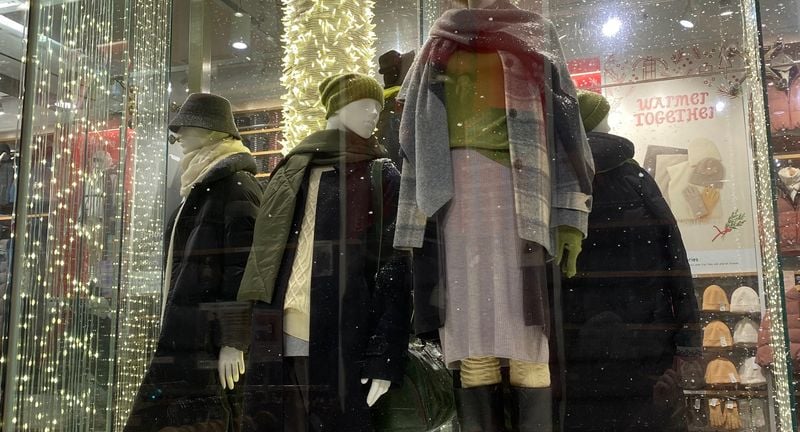Kaarin Vembar/Retail Dive
Daphne Howland|Source: www.retaildive.com, December 2022
Department stores and other retailers dependent on clothing sales face a gloomy 2023 and may shutter more locations, according to the analysts.
The apparel market has declined over the last several years as etiquette has allowed more casual attire for work and special occasions, and as the U.S. middle class has shrunk. Apparel and footwear have grown relatively slowly compared to other categories since at least 2016, and have lost wallet share “for decades,” UBS analysts said in a Dec. 18 research note.
But the segment is getting even tougher, based on consumer surveys conducted by the firm’s Evidence Lab. Many retailers dependent on apparel sales face gloomier prospects than this year’s retail numbers from the government suggest, according to UBS analysts led by Jay Sole.
U.S. consumers’ willingness to spend on softgoods like apparel, footwear and accessories in December shrank 15.7% from 2019, the biggest decline since the pandemic began, with a score lower than any other December “since at least 2013,” per the report. The weakness is showing up across all income levels, with even higher-income spending plans down 13.3%.
“U.S. consumers have deferred apparel purchases at a much higher rate than they did one year ago,” Sole wrote, adding that they “are planning to shop for sales more often, buy more store brand products, take fewer shopping trips, and shop closer to home.”
Financial pressure from rising prices has squeezed household budgets, and consumers are expecting more inflation as well as a declining labor market, the analysts said, noting that the percentage of those who say they know someone who was laid off rose to 5% in December from the 4.4% last month. U.S. consumers generally feel less financially secure and that their standard of living deteriorated compared to last year, and those sentiments worsened from November to December.
Uncertainty, which has intensified for consumers and businesses alike throughout the pandemic, may have actually shaped an attitude toward consumption that has been favorable to retailers of late, but that may not last, according to UBS.
“U.S. consumers increasingly say their philosophy of spending is ‘Live for today’ because tomorrow is so uncertain. We believe this trend could have helped boost spending over the [last 12 months],” Sole said. “Taking a step back, this trend concerns us because it implies potential for a big drop-off in spending if consumers’ incoming cash flow slows or credit becomes less available or less affordable.”

